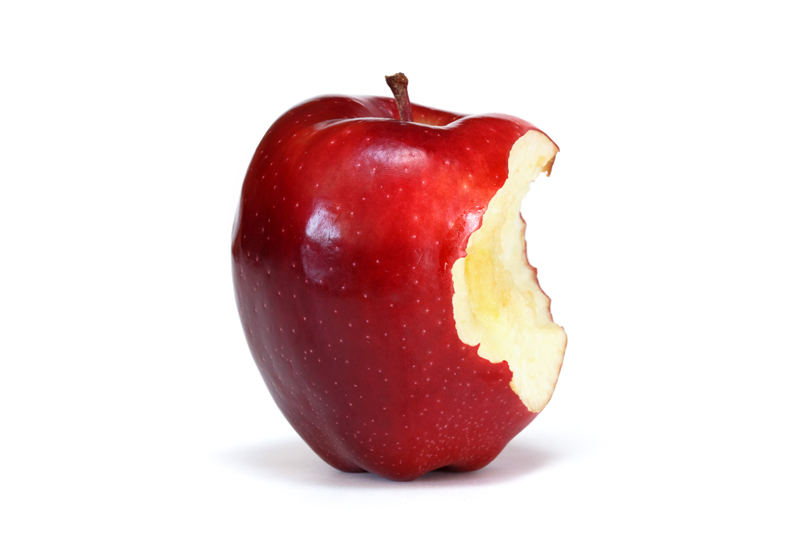Vitamin C-For Your Health

Did you know if you want to fight wrinkles, then you need to make vitamin C one of your vitamin supplements. Vitamin C helps make and maintain collagen. The fibrous substance that keeps your skin looking young. Collagen also holds muscle tissue and bones together and forms the scar tissue that heals wounds. Vitamin C also helps strengthen small blood vessels to help prevent bruising.
Vitamin C has strong antioxidants properties. As a water-soluble vitamin, it protects your body from damaging oxidation the same way that vitamin E protects fats from free radical damage.
What is an antioxidant?
Every time you breathe you take in invigorating oxygen. As your body processes this oxygen it produces chemicals called free radicals. Free radicals are unstable molecules that lack an electron. They travel through your body, trying to steal electrons from stable healthy cells. When they succeed they leave the cell irreversibly damaged. One damage cell is not a big deal but over time these molecules can cause so much damaged that your body becomes weak, and you’re more likely to fall prey to disease. This cell damage is called oxidation, and it is similar to the oxidation of metal that produces rust.
Luckily our bodies also produce antioxidants, which neutralize free radicals. You also get them from your diet in the form of antioxidant vitamins. They fight oxidation by combining with free radicals to form a harmless substance or by contributing an electron to the free radical, making it stable. Antioxidants like vitamin C are always protecting your health and counteracting oxidation wherever it happens.
Vitamin C and health:
Folic acid and iron need vitamin C to be processed properly by your body. Vitamin C keeps iron from becoming oxidized, making your iron intake more effective. Even if you get plenty of iron if you don’t also get enough vitamin C, you may still become anemic.
People have long believed that vitamin C can prevent colds. While that may have not been proven, studies find that it may reduce the length of time you suffer cold symptoms. It also plays a role in your immune system; so it may help prevent infections.
Breathing easer with Vitamin C, a test group of asthmatics took supplements of 1 to 2 grams of vitamin C, a natural antihistamine. In the majority of cases breathing symptoms improved. Try to get as much vitamin C as possible from natural sources like citrus fruits and juices.
Some studies have shown that vitamin C is used up quickly during times of stress. The loss of vitamin C can be made up easily through your diet.
Exercise and sore muscles, vitamin C may help head off some of those muscle aches. One study found that people who took 400 mg of vitamin C before doing one hour of strenuous exercise woke up the next day feeling less sore than usual.
And if that’s not enough, vitamin C can help you fight off at least three major diseases: cancer, diabetes, and heart disease. The antioxidant properties of vitamin C can help fight cancer cells in the colon, mouth, esophagus, and cervix. The pancreas secretes insulin more slowly when vitamin C is present, resulting in better control of blood sugar. And perhaps most importantly, vitamin C helps prevent damage to the heart and promotes thinner blood.
Vitamin C-deficiency
A mild deficiency of vitamin C can result in fatigue, bruising, joint pain, dry eyes and mouth, and depression. If untreated these symptoms can worsen and result in scurvy. Symptoms of scurvy include bleeding or swollen gums, loose teeth, swollen ankles and wrists, weakness, poor wound healing. Scurvy rarely occurs today, because of the easy availability of fruits and vegetables. However if you neglect your fruits and vegetable intake it is still possible to become deficient in vitamin C.
Cigarette smoker need more vitamin C than nonsmokers because smoking interferes with the use vitamin C in the body. Alcoholics may also be more vulnerable to vitamin C deficiency.
Many people take supplements containing mega-dosage of vitamin C, as much as 1,000 mg a day or more. Large doses may cause kidney stones, nausea, abdominal cramps, and diarrhea; your body has trouble absorbing more than 400 mg at a time and you lose the rest in your urine. To make matters worse chewable vitamin C tablets can erode your tooth enamel. You can easily get enough vitamin C it you eat the recommended five fruits and vegetable a day. So before investing a lot of money in mega-dose supplements, see if you can’t just eat more oranges or broccoli, brussels sprouts. That’s a much cheaper, healthier and safer alternative.
Vitamin C-Food sources:
Sweet red peppers
Orange juice
Strawberries
Cantaloupe
Brussels sprouts
Tomato juice
Collard greens
Broccoli
Cabbage
Before taking large doses of any supplement, check with your doctor. This information is for informational purpose only and is not intended to replace the care or advice of a physician.
Source: Natural Health Nutrition
Antioxidant Micronutrients and Immune Responses
Vitamin C has strong antioxidants properties. As a water-soluble vitamin, it protects your body from damaging oxidation the same way that vitamin E protects fats from free radical damage.
What is an antioxidant?
Every time you breathe you take in invigorating oxygen. As your body processes this oxygen it produces chemicals called free radicals. Free radicals are unstable molecules that lack an electron. They travel through your body, trying to steal electrons from stable healthy cells. When they succeed they leave the cell irreversibly damaged. One damage cell is not a big deal but over time these molecules can cause so much damaged that your body becomes weak, and you’re more likely to fall prey to disease. This cell damage is called oxidation, and it is similar to the oxidation of metal that produces rust.
Luckily our bodies also produce antioxidants, which neutralize free radicals. You also get them from your diet in the form of antioxidant vitamins. They fight oxidation by combining with free radicals to form a harmless substance or by contributing an electron to the free radical, making it stable. Antioxidants like vitamin C are always protecting your health and counteracting oxidation wherever it happens.
Vitamin C and health:
Folic acid and iron need vitamin C to be processed properly by your body. Vitamin C keeps iron from becoming oxidized, making your iron intake more effective. Even if you get plenty of iron if you don’t also get enough vitamin C, you may still become anemic.
People have long believed that vitamin C can prevent colds. While that may have not been proven, studies find that it may reduce the length of time you suffer cold symptoms. It also plays a role in your immune system; so it may help prevent infections.
Breathing easer with Vitamin C, a test group of asthmatics took supplements of 1 to 2 grams of vitamin C, a natural antihistamine. In the majority of cases breathing symptoms improved. Try to get as much vitamin C as possible from natural sources like citrus fruits and juices.
Some studies have shown that vitamin C is used up quickly during times of stress. The loss of vitamin C can be made up easily through your diet.
Exercise and sore muscles, vitamin C may help head off some of those muscle aches. One study found that people who took 400 mg of vitamin C before doing one hour of strenuous exercise woke up the next day feeling less sore than usual.
And if that’s not enough, vitamin C can help you fight off at least three major diseases: cancer, diabetes, and heart disease. The antioxidant properties of vitamin C can help fight cancer cells in the colon, mouth, esophagus, and cervix. The pancreas secretes insulin more slowly when vitamin C is present, resulting in better control of blood sugar. And perhaps most importantly, vitamin C helps prevent damage to the heart and promotes thinner blood.
Vitamin C-deficiency
A mild deficiency of vitamin C can result in fatigue, bruising, joint pain, dry eyes and mouth, and depression. If untreated these symptoms can worsen and result in scurvy. Symptoms of scurvy include bleeding or swollen gums, loose teeth, swollen ankles and wrists, weakness, poor wound healing. Scurvy rarely occurs today, because of the easy availability of fruits and vegetables. However if you neglect your fruits and vegetable intake it is still possible to become deficient in vitamin C.
Cigarette smoker need more vitamin C than nonsmokers because smoking interferes with the use vitamin C in the body. Alcoholics may also be more vulnerable to vitamin C deficiency.
Many people take supplements containing mega-dosage of vitamin C, as much as 1,000 mg a day or more. Large doses may cause kidney stones, nausea, abdominal cramps, and diarrhea; your body has trouble absorbing more than 400 mg at a time and you lose the rest in your urine. To make matters worse chewable vitamin C tablets can erode your tooth enamel. You can easily get enough vitamin C it you eat the recommended five fruits and vegetable a day. So before investing a lot of money in mega-dose supplements, see if you can’t just eat more oranges or broccoli, brussels sprouts. That’s a much cheaper, healthier and safer alternative.
Vitamin C-Food sources:
Sweet red peppers
Orange juice
Strawberries
Cantaloupe
Brussels sprouts
Tomato juice
Collard greens
Broccoli
Cabbage
Before taking large doses of any supplement, check with your doctor. This information is for informational purpose only and is not intended to replace the care or advice of a physician.
Source: Natural Health Nutrition
Antioxidant Micronutrients and Immune Responses
You Should Also Read:
The Antioxidant Vitamin- Vitamin C -by Gary Null, Ph.D.

Editor's Picks Articles
Top Ten Articles
Previous Features
Site Map
Content copyright © 2023 by Victoria Abreo. All rights reserved.
This content was written by Victoria Abreo. If you wish to use this content in any manner, you need written permission. Contact Victoria Abreo for details.



